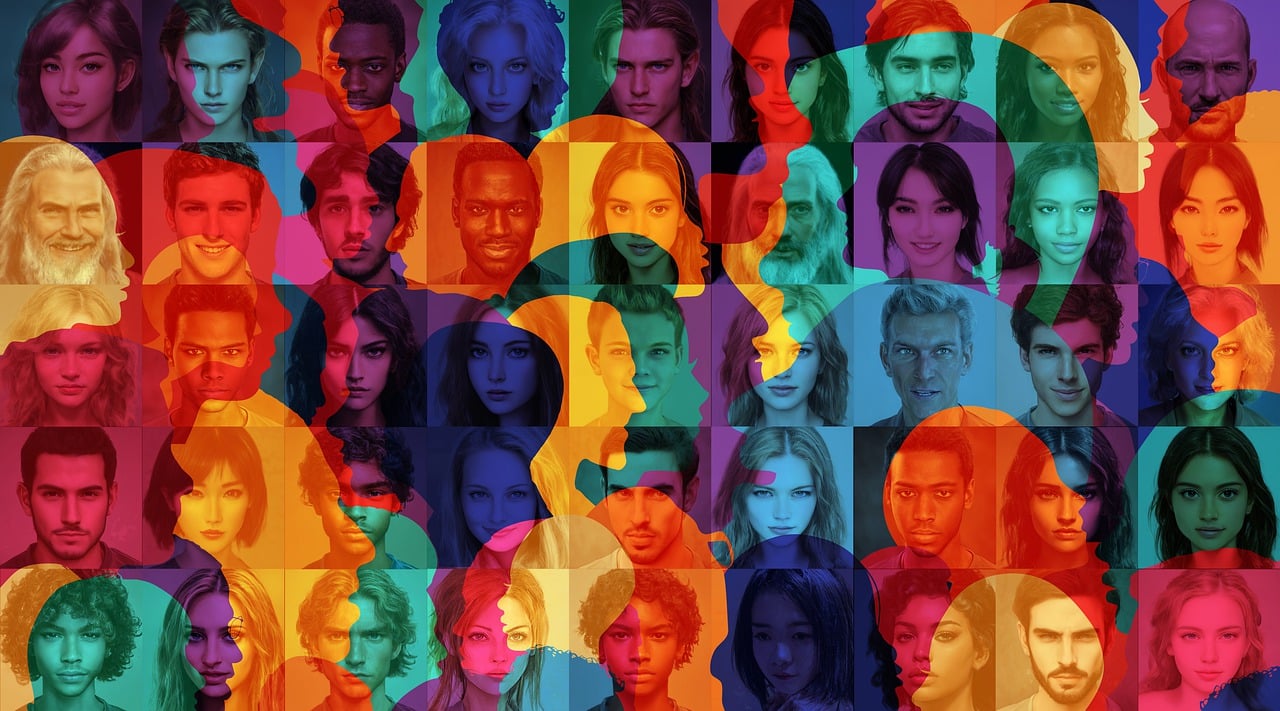Diversity (GSRD): Embracing Inclusivity and Support
In today’s evolving society, the concepts of gender, sex, and relationships are increasingly recognised as diverse and complex. Understanding and respecting this diversity is crucial for creating inclusive and supportive environments. This blog explores Gender, Sex, and Relationship Diversity (GSRD) and how embracing these concepts can positively impact mental health and well-being.
What is Gender, Sex, and Relationship Diversity (GSRD)?
Gender, Sex, and Relationship Diversity (GSRD) encompasses a broad range of identities and experiences related to gender, sex, and romantic or sexual relationships. This term reflects the understanding that these aspects of human experience are not limited to binary or traditional norms but include a spectrum of possibilities.
Gender Diversity:
- Gender Identity: Refers to an individual’s internal sense of their own gender, which may be male, female, a blend of both, neither, or somewhere along the gender spectrum.
- Gender Expression: The external presentation of gender, including clothing, behavior, and other forms of expression, which may or may not align with societal expectations of masculinity or femininity.
- Non-Binary and Genderqueer Identities: Individuals who do not identify exclusively as male or female, such as those who identify as genderqueer, genderfluid, or agender.
Sex Diversity:
- Sexual Orientation: Describes an individual’s emotional, romantic, or sexual attraction to others, which may include heterosexual, homosexual, bisexual, pansexual, asexual, or other orientations.
- Sex Characteristics: Refers to the physical attributes of an individual’s body, including chromosomal, hormonal, and anatomical characteristics. Intersex individuals may have variations in these attributes that do not fit typical definitions of male or female.
Relationship Diversity:
- Relationship Structures: Includes various forms of consensual relationships beyond traditional monogamy, such as polyamory, open relationships, and other non-monogamous arrangements.
- Relationship Dynamics: Refers to the patterns of interaction and communication between partners, which can vary widely and include diverse forms of emotional and sexual intimacy.
The Importance of Embracing GSRD
Embracing Gender, Sex, and Relationship Diversity is essential for several reasons:
- Promotes Inclusivity: Understanding and respecting GSRD helps create inclusive environments where individuals feel accepted and valued.
- Supports Mental Health: Inclusive practices reduce stigma and discrimination, which can improve mental health outcomes and overall well-being for individuals with diverse identities.
- Enhances Relationships: Recognizing and respecting diverse relationship structures and dynamics fosters healthier and more respectful interpersonal connections.
Challenges Faced by Individuals in the GSRD Spectrum
Individuals within the GSRD spectrum may face various challenges, including:
- Discrimination and Stigma: Negative societal attitudes and discrimination can lead to isolation, stress, and mental health struggles.
- Lack of Understanding: Misunderstandings or lack of awareness about diverse identities and relationships can create barriers to acceptance and support.
- Healthcare Access: Access to affirming and knowledgeable healthcare providers may be limited, impacting the quality of care and support.
Strategies for Supporting GSRD
Supporting individuals with diverse gender, sex, and relationship identities involves a combination of awareness, education, and action:
Educate Yourself and Others:
- Learn about diverse identities and experiences related to gender, sex, and relationships.
- Share knowledge and advocate for inclusivity in your community and professional settings.
Practice Respect and Affirmation:
- Use individuals’ preferred names, pronouns, and gender expressions.
- Respect and affirm diverse relationship structures and dynamics.
Create Inclusive Spaces:
- Foster environments that are welcoming and supportive of all gender identities and relationship forms.
- Implement policies and practices that promote inclusivity and respect.
Provide Access to Affirming Care:
- Ensure that mental health and healthcare services are knowledgeable and sensitive to diverse needs.
- Offer support and resources tailored to the unique experiences of individuals in the GSRD spectrum.
Support Advocacy and Community Building:
- Engage with and support organizations and initiatives that advocate for GSRD rights and visibility.
- Participate in community events and efforts to promote understanding and acceptance.
Seeking Support at JD Psychotherapy
At JD Psychotherapy, we are committed to providing compassionate and inclusive support for individuals of all gender, sex, and relationship identities. Our experienced therapists are here to help you navigate the challenges you may face and support you in achieving mental health and well-being. Contact us today to schedule an appointment and take the first step towards embracing and celebrating your identity.
